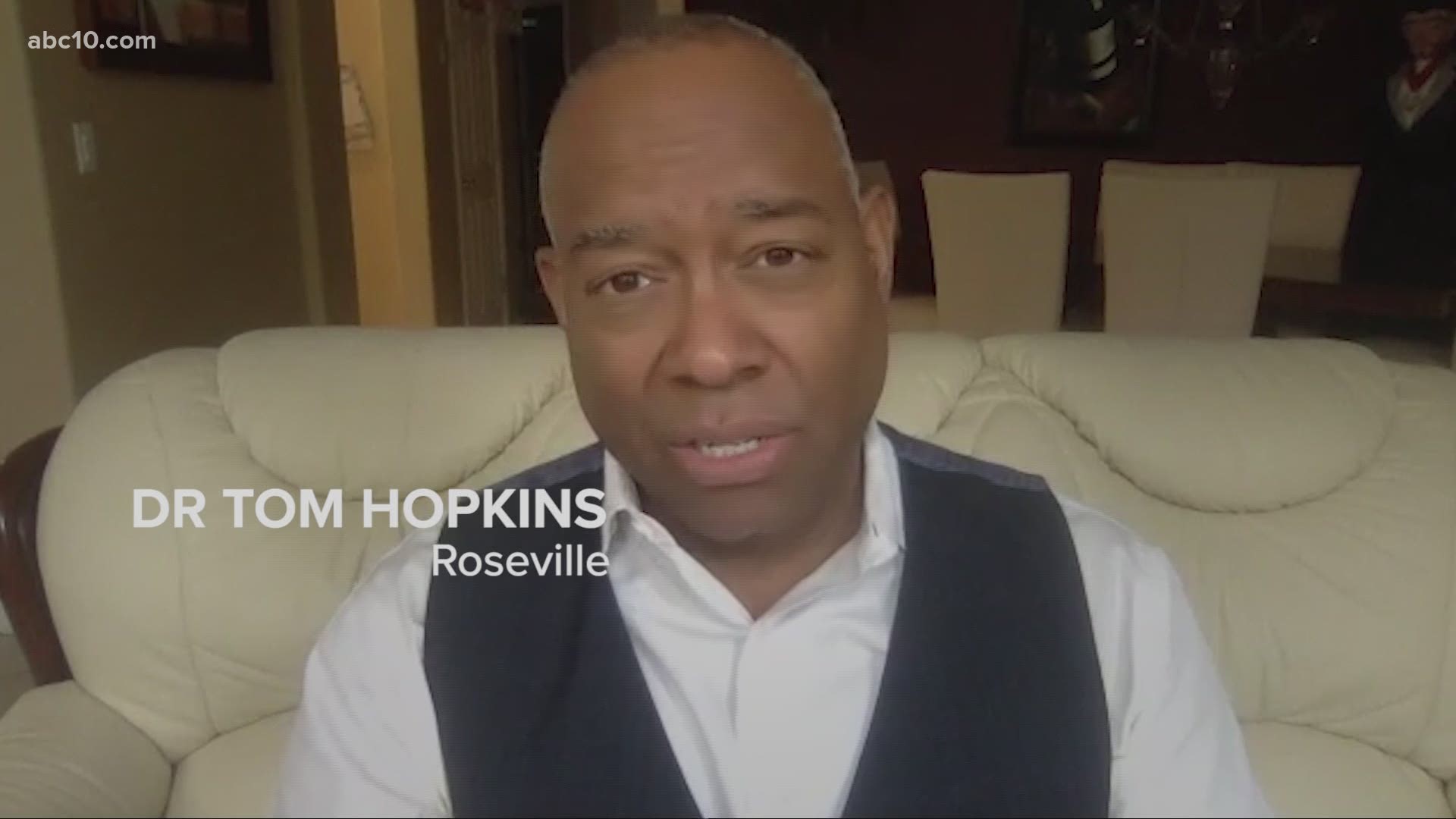SACRAMENTO, Calif — As the coronavirus tightens its grip across the country, it is cutting a particularly devastating swath through an already vulnerable population — black Americans.
Leaders in cities hard-hit by the pandemic have been sounding the alarm over what they see as a disturbing trend of the virus killing African Americans at a higher rate, along with a lack of overall information about the race of victims as the nation’s death toll mounts.
An Associated Press analysis found that 42% of the victims whose demographic data was shared by local officials were black, even though African Americans account for roughly 21% of the population in the areas covered the analysis.
So how do those numbers stack up in California?
African Americans make up roughly 6.5% of the state’s population, but preliminary data released by the California Department of Public Health show black residents account for 7% of state's coronavirus cases and 8% of deaths.
Still, the data is incomplete, accounting for only 54% of total coronavirus cases and 53% of coronavirus deaths across the state.
Here's the complete breakdown statewide:
- Latino: 30% of cases; 26% of deaths (39% of the state's population)
- White: 34% of cases; 38% of deaths (37% of the state's population)
- Black: 7% of cases; 8% of deaths (6% of the state's population)
- Asian: 13% of cases; 18% of deaths (15% of the state's population)
- Multiracial: 2% of cases; 1.5% of deaths (2% of the state's population)
- American Indians or Alaska Natives: 0.2% of cases; 0.4% of deaths (0.5% of the state's population)
- Native Hawaiians or Pacific Islanders: 2% of cases; 0.8% of deaths (0.3% of the state's population)
- Other: 13% of cases; 8% of deaths (N/A)
So why are African Americans disproportionately affected by COVID-19? For a myriad reasons, according to Roseville Dr. Tom Hopkins.
For starters, Hopkins said many African Americans often don’t have a primary care doctor and lack education about the virus. For those who live in historically disenfranchised communities, "they have been left out system, so they never had great access" and often stay home for too long when they should have seen a doctor.
"Hospitals have to now pay attention to social deterrents to health as well recognize that these folks that are coming in are at a disadvantage in a lot of cases," Hopkins said. "And they are going to need a lot of resources and more support."
For a while, when the virus first began to spread to more countries, there was an idea — which was more of an online joke spread on social media that some took seriously — that African Americans weren't susceptible to the virus. The idea stemmed from the fact that it took longer for the virus to spread to African countries.
Even now, African countries have yet to experience the large amount of coronavirus cases that many American, European and Asian countries have, according to the World Health Organization.
For now. With some 10,000 cases and 500 deaths have been confirmed across the continent, public health officials worry that it's just the beginning of what could be a tsunami of cases in Africa.
California Surgeon General Dr. Nadine Burke Harris said the virus doesn’t discriminate. And now, because of the historic disconnect between black American and healthcare, the disproportionality of coronavirus cases is becoming more apparent.
"Because of the true and unfortunately history of medical maltreatment of different groups of people — but especially African Americans in the United States — there are real issues of trust between the African American community and the healthcare system," said Burke Harris, the state's first surgeon general.
Greater Sacramento NAACP President Betty Williams said some of that mistrust can be traced to a 1932 Tuskegee study that used African American men as human experiments.
Researchers lied to the men, telling them they were being treated for "bad blood," but they didn't receive the proper treatment needed to cure their illness. The study went on for 40 years instead of the originally planned 6 months.
"You have a lack of trust," Williams said. "So we are trying with the NAACP to tell individuals to ask more questions — don’t let the physicians off the line. Your health is important to you and your family."
Williams said locally there is much to be done to make sure those who look like her do survive the pandemic starting with getting testing to black communities like Del Paso Heights, Meadowview and Oak Park.
Meanwhile, presumptive Democratic nominee Joe Biden is joining a growing call for the release of comprehensive racial data amid the coronavirus pandemic.
He says the virus has put a spotlight on inequity and the impact of "structural racism" on communities of color. He made the comments in a Medium post Thursday.
"This pandemic is shining a light on so many inequities in our society — the lack of paid sick leave for workers, the need for stronger unemployment insurance, the necessity for a livable minimum wage," Biden said. "Unsurprisingly, it's also amplifying the structural racism that is built into so much of our daily lives, our institutions, our laws, and our communities."
FOR THE LATEST CORONAVIRUS NEWS,
DOWNLOAD THE ABC10 APP:
►Stay In the Know! Sign up now for ABC10's Daily Blend Newsletter



